Evidence Papers on Women in Economics
The International Economic Association has commissioned six independent studies for the following countries: Argentina, Colombia, Ghana, India, Mexico and South Africa with a view to build a comprehensive data base on women in the economics profession, including subfields that might exist as separate departments, such as agricultural economics.
This marks an important step forward in advancing economic knowledge and promoting gender inclusivity in the field of economics.
Argentina

Mariana Viollaz

Mariana Marchionni

María Edo

Florencia Pinto
Examining the Situation of Women in the Economics Profession in Argentina
The project
Our project aims at documenting the representation of women and the gender gaps in the economics profession across the full range of academic tiers in Argentina, from undergraduate programs to faculty and research positions. To this end, we are currently collecting data on enrollment rates, graduation rates, career progression, and representation in leadership roles. Sources include microdata from universities across Argentina, administrative national databases, administrative data coming from other academic institutions as well as publicly available data on the web.
The team
María Edo. Professor and Affiliate Researcher, Universidad de San Andrés (Buenos Aires, Argentina).
Email: medo@udesa.edu.ar.
Webpage: https://mariaedo.weebly.com/
Mariana Marchionni. Professor, National University of La Plata (UNLP), Argentina. Researcher, CEDLAS-IIE-UNLP and CONICET.
Email: mariana.marchionni@econo.unlp.edu.ar.
Webpage: https://www.cedlas.econo.unlp.edu.ar/wp/en/mmarchionni/
María Florencia Pinto. Professor, National University of La Plata (UNLP), Argentina. Researcher, CEDLAS-IIE-UNLP.
Email: mflorenciapinto@gmail.com.
Webpage: https://sites.google.com/view/mariaflorenciapinto/home
Mariana Viollaz: Researcher at CEDLAS-UNLP and Research fellow at IZA.
Email: marianaviollaz@gmail.com
Webpage: https://sites.google.com/view/marianaviollaz/home
Colombia
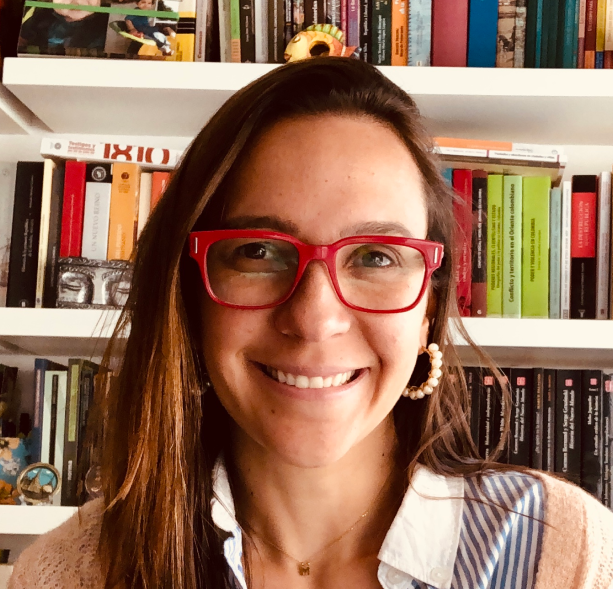
Maria del Pilar López Uribe
The Colombian team is led by Maria del Pilar López-Uribe, assistant professor in the economics department of Universidad de los Andes, Juliet Molano and Alejandra Sanchez, both master students and research assistants of the Economics Department of the same university. Our project collects data from the last 20 years on Colombia’s economics departments. The data is divided by sex and organised by undergraduate, Master and PhD students and includes information on enrollment and graduation rates by region. We also collect information on faculty and directors of economic departments, members of academic institutions, and academic research and publications. Finally, we collect some individual levels of a subset of universities to dig into more specific variables such as GPA, enrollment age, and graduation. We want to study the participation of women at all levels in the economic field in Colombia and analyze glass ceilings and obstacles that women in economics face in Colombia.
Ghana
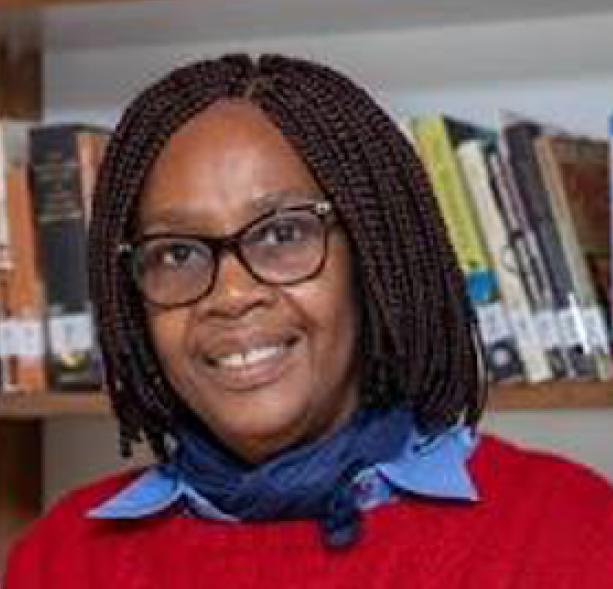
Abena D. Oduro
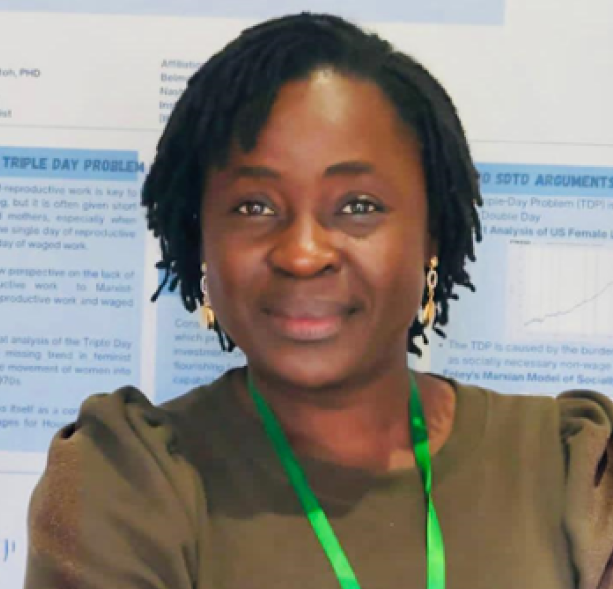
Gloria Afful Mensah
Evidence Papers on Women in Economics – A Case Study of Ghana
The case study on Ghana has two objectives. The first is to create a database on female and male students in departments of economics and allied departments in universities in Ghana across the full range of academic tiers. The second is to create a database of female academics in economics and conduct an assessment of women in academic research and publishing in the discipline. The study will rely on both secondary and primary data. The research team comprises Abena D. Oduro, Associate Professor and Gloria Afful-Mensah, Lecturer, Department of Economics, University of Ghana, Legon, Ghana.
India

Upasak Das

Karan Singhal
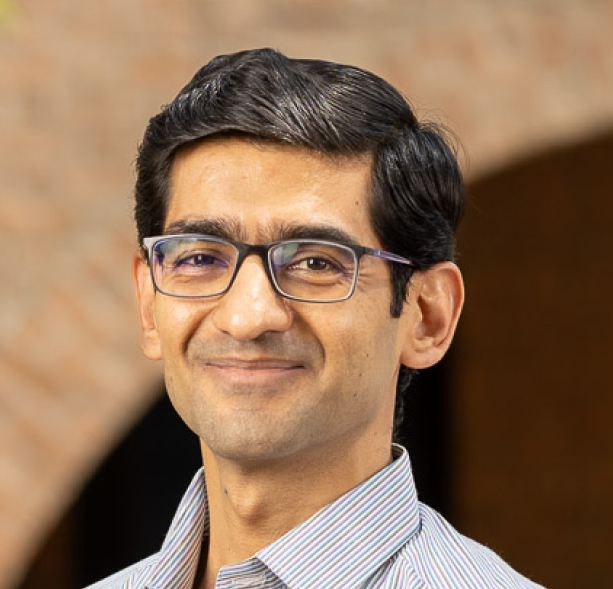
Ambrish Dongre
Ambrish Dongre is a faculty member at the Indian Institute of Management Ahmedabad, Upasak Das, is a faculty member at the University of Manchester and Karan Singhal is a PhD candidate in Economics at the University of Luxembourg and LISER.
Their project aims to study the representation of women in economics academia in India, documenting their presence in conferences and faculty positions in universities and research institutes. The project will create an accurate and comprehensive database on the presence of women in Indian Economic academia, which will be available for research and policy purposes.
Websites:
Ambrish Dongre: https://www.iima.ac.in/faculty-research/faculty-directory/ambrish-dongre [iima.ac.in]
Upasak Da:https://sites.google.com/site/upasakdas/home [sites.google.com]
Karan Singhal: https://sites.google.com/view/karan-singhal [sites.google.com]
Mexico
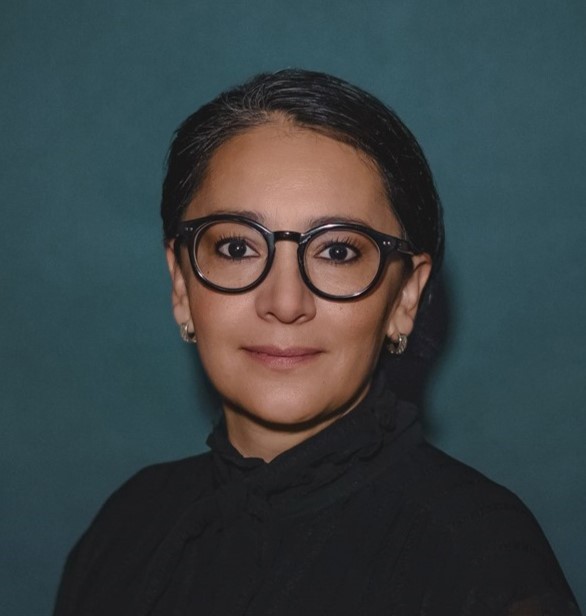
Eva O. Arceo-Gómez
Eva O. Arceo-Gómez has a PhD in Economics from the University of California, Berkeley; Master in Economics from El Colegio de México; and Licentiate in Economics from Tec de Monterrey. She is currently a Professor of Economics at Universidad Iberoamericana, Mexico City. Her main research interests are women and youth in labor markets; gender economics with an emphasis on discrimination and gender-based violence; and the intersection between environmental economics, labor, health, and educational outcomes. She is Level 2 in the Mexican National System of Researchers, a LACEA 25th Anniversary Associate, and her research has received several national awards.
She is the principal investigator of the Mexican chapter of the Women in Economics project launched by the International Economics Association. Besides creating and analyzing the databases required by the project, she is interested in analyzing gender biases in publications, citations, and research networks within the Economics profession in Mexico, and blockages in the advancement of women in Economics.
South Africa

Emma Whitelaw
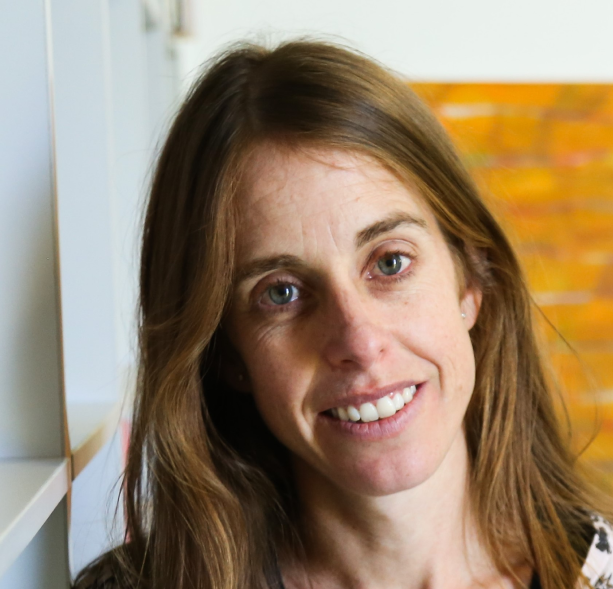
Nicola Branson
The South African project aims to build an understanding of gender imbalances in the economics profession across all academic tiers in the public university system. This will offer insights into potential barriers and biases within the higher education sector, and how they intersect with other inequalities. The study will contribute evidence to inform the nation’s goals of achieving gender equality and fostering inclusive economic development. Project researchers, Nicola Branson (Chief Research Officer) and Emma Whitelaw (Post-doctoral Researcher) are based at the Southern Africa Labour and Development Research Unit, University of Cape Town, where their work falls within the Siyaphambili (‘we are moving forward’) Post-school Research Initiative, a hub for post-compulsory education information and research.